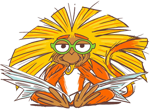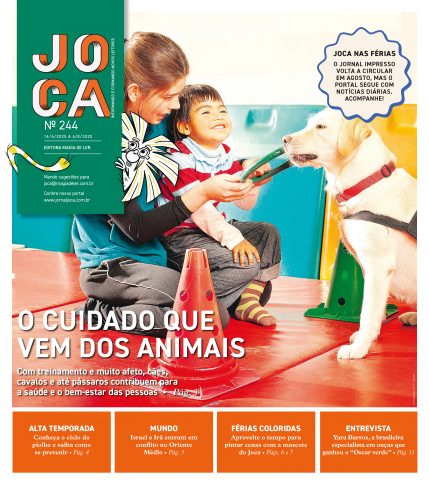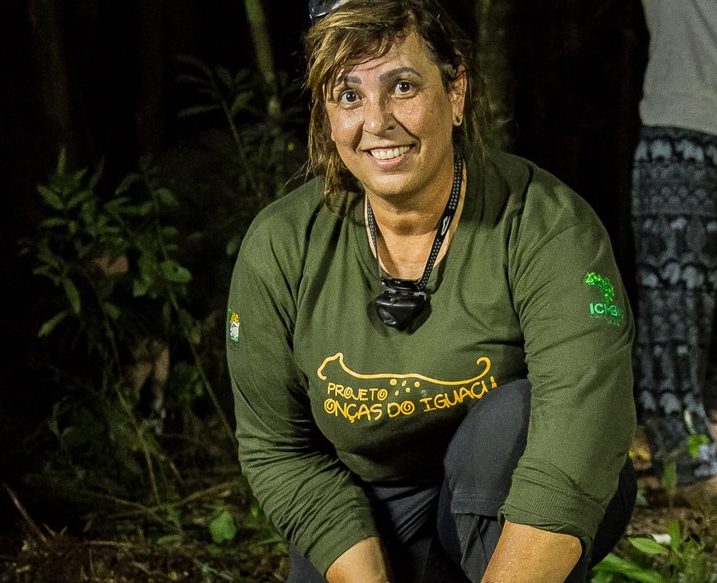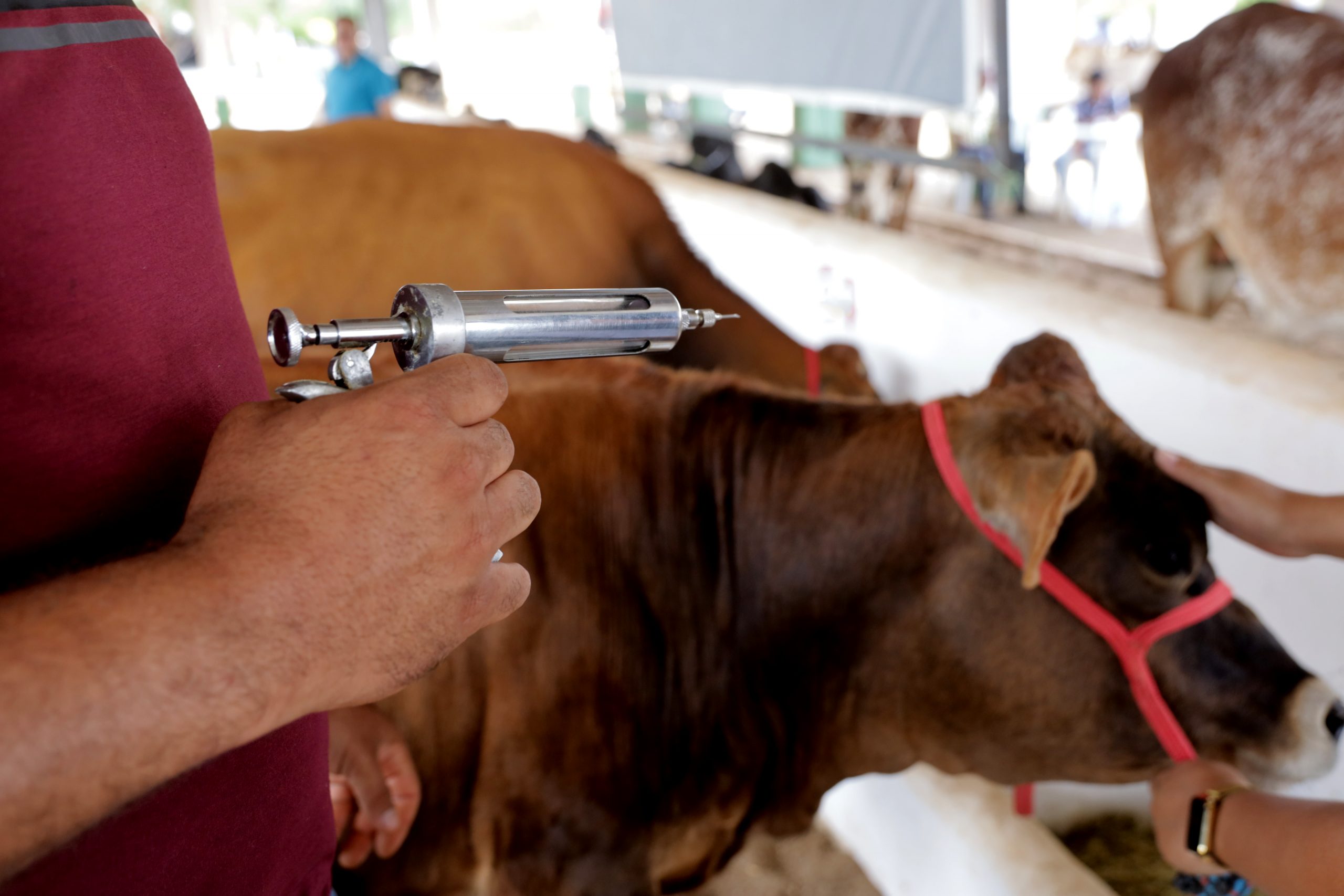In English
2 de agosto de 2021
Wildlife Protectors – Level 3
Article published in Joca 173

In June, in partnership with Boy Scouts of Brazil, the non-governmental organization (NGO) World Animal Protection launched the training program “Protection of Wild Animals”. In order to be identified as experts on this topic and earn a special badge, scouts need to learn why protecting wild animals, which live freely in nature, is important and engage the community where they live.
To find out more about the subject, 10-year-old reader Flávio C. interviewed João Almeida, a training manager at the NGO, and Rubem Perlingeiro, who has been a Boy Scout volunteer for over 35 years. Check out their conversation below.
What are the main endangered wild animals?
João Almeida: We, the experts at World Animal Protection and at other organizations, say that we are on the brink of the sixth mass extinction of species on Earth. So it’s hard to say which are the main ones, because each of them is connected and has an important role to play in nature. However, just so I don’t let you down, a few examples of animals that are high on the list that I would mention are the brown howler and the pied tamarin, which are monkeys, and the porpoise, a type of dolphin.
How could technology help wild animals?
João: One way is using satellites that monitor Brazilian biomes. A biome is the set of animals and plants that have adapted to the geography and climate of a certain region, such as the Pantanal. One of the systems that we use in Brazil that uses satellites is Terra Brasilis, from the National Institute for Space Research (Inpe), which allows deforestation to be assessed in real time. Fauna belongs in nature and needs forests to survive. Systems like these are essential to prevent deforestation and protect the environment and wild animals.
How can children who are living in the city help?
João: Children love nature and animals; they are guardians of fauna. They need to keep talking to each other and to remind their parents that it’s time to stop cutting down forests, littering rivers and oceans, demand that parents vote for politicians who will protect the environment; warn older people that wild animals belong in nature and that they should not be bought, sold, or become pets, that they should not be used for entertainment, and that the only kind of interaction with wild animals should be to observe them in nature! That their fur, leather, horns, or other parts should not be used to produce anything, particularly luxury items. And that they should also not be used as medicine. And that hunting animals as a sport is something that should not occur.
How can a child become a scout?
Rubem Perlingeiro: You must be between 11 and 14, enjoy nature, look for a scout troop, join this troop and willingly take on the commitments that are part of the Scout’s Promise and Law. From the age of six and a half, a child can already become a wolf if they know how to read and write. And, even if you were not a Boy Scout or Girl Scout, starting at age 15, any teenager can also become a senior (scout) or a guide. There is a specific training program for each age group.
When someone becomes a boy scout, does he become a protector of wild animals also?
Rubem: Yes. One of the commitments in the Scout Law is to preserve the environment and, particularly, to protect animals – not just wild ones.
How important is the partnership between the Boy Scouts and the NGO?
Rubem: The partnership came at a wonderful time because wild animals protection is becoming more and more important. It is essential, for example, for young people to recognize that certain diseases in humans are caused by zoonosis [diseases transmitted to humans by animals] from wild animals. Because of wild animal trade, humans are more at risk of contracting zoonotic diseases such as Ebola, the avian flu and now, covid-19.
What do scouts do that we do not?
Rubem: Scouts are committed to being trustworthy and concerned about others, protecting the environment, and paying attention to their physical and mental health. A boy scout is not perfect, of course, but he always keeps these traits in mind as a way to guide his life and help him become a good and socially engaged person who seeks to leave this world better than he found it.
Questions
1) Who can become a wolf?
a) Only those over 15
b) A child or teenager of any age
c) People aged 11 and over
d) Children aged six and a half who can read and write
2) Do you do anything that has been mentioned in the interview to help protect wild animals?
Ixi! Você bateu no paywall!
Ainda não é assinante? Assine agora e tenha acesso ilimitado ao conteúdo do Joca.












Você precisa fazer o login para publicar um comentário.